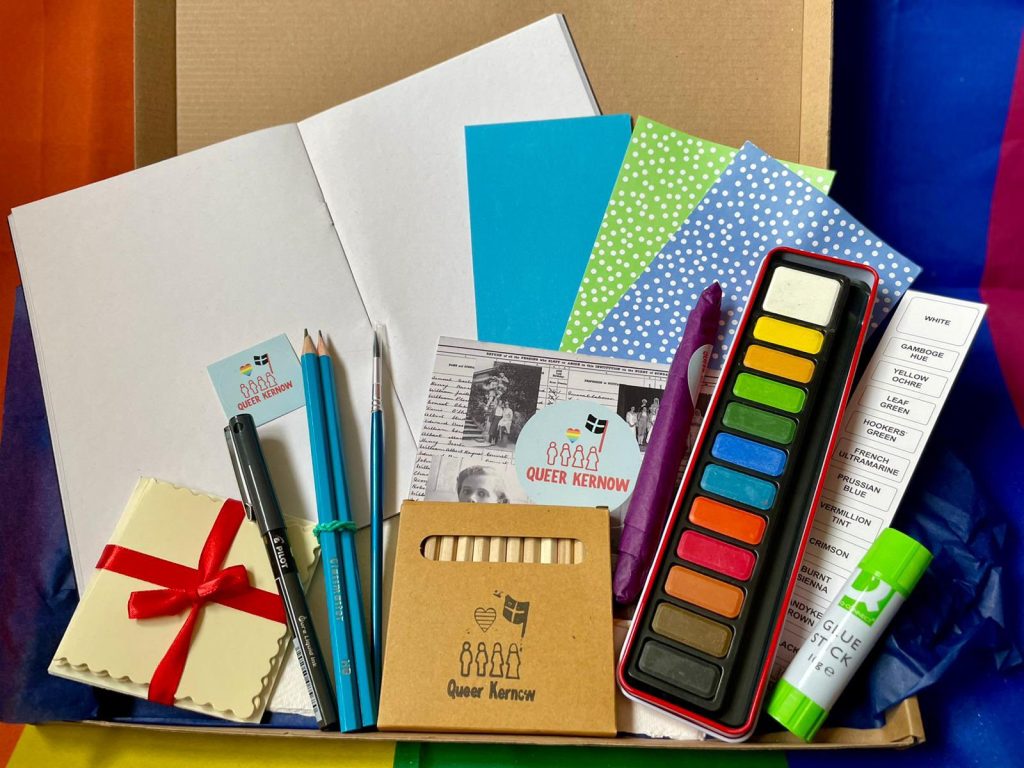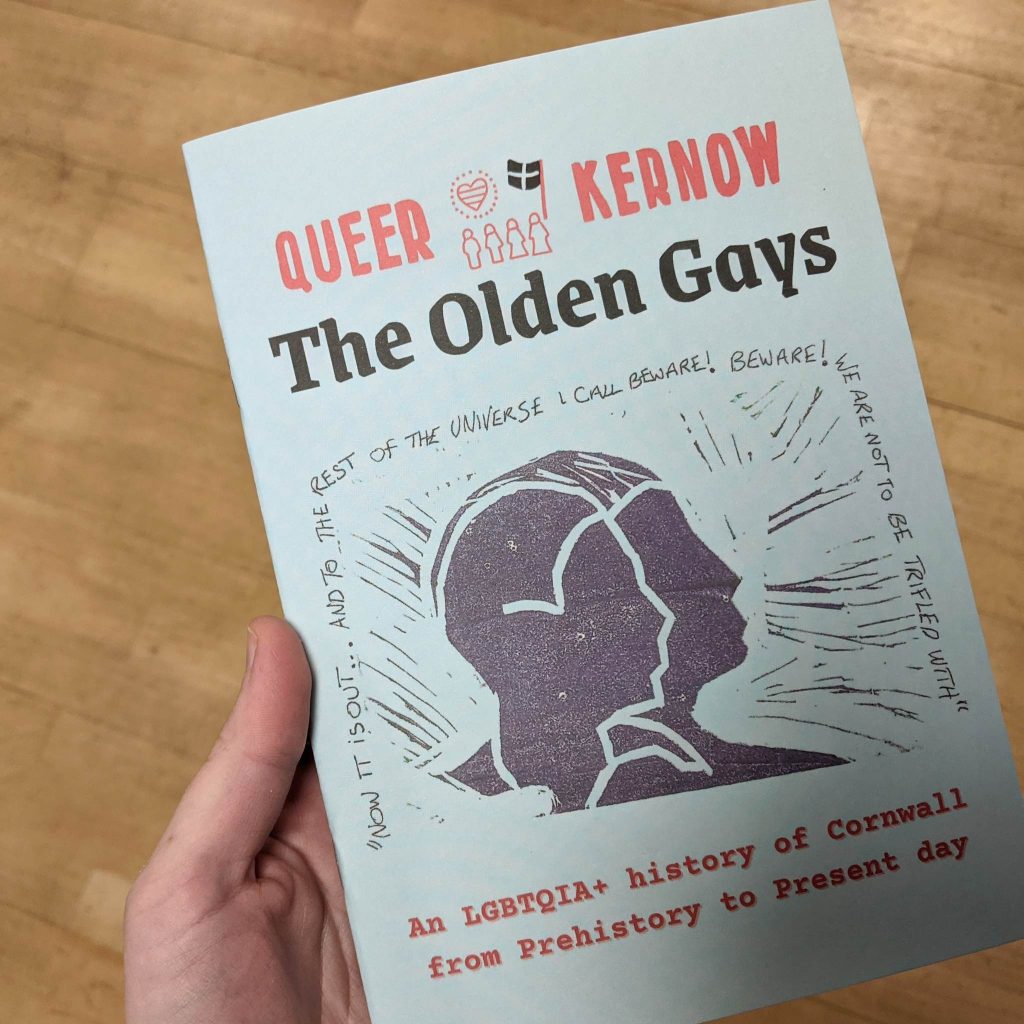
During LGBT history month we received support from both the Queer Heritage Collections Network and Cornwall Museums Partnership to run training workshops for the heritage sector on ‘Queering the Museum’.
We delivered this in partnership with the Inclusive Collections Network to deliver a workshop to over 10 different heritage organisations from volunteer run to national organisations.
“We established the Inclusive Collections Network in 2021 thanks to support from the Art Fund. The network exists to provide a safe space for collections engagement staff, curators and collections managers (both paid and volunteer) across Cornwall to come together. At the meetings we tackle inclusion with an intersectional lens, ensuring attendees can share experiences, review best practice, and collectively problem solve.” – CMP
We were keen to share the thoughts and perspectives of the Queer community towards Museums and attended the LGBT History Month event organised locally by FFLAG and Cornwall Pride bus tour where we conducted research on perceptions of museums within the community.

Some of the responses:
“My queer role models were always people in the present and popular celebrities, they were not scientists, writers, lawmakers or anything aspirational…because I was never seen in history. If I was able to see ‘me’ in history growing up I would have challenged my existence less.”
“As a genderqueer person with a very rainbow family, I don’t always feel welcome in traditional spaces such as museums. We get very good at looking out for clues that a place is ‘safe’. Some spaces have things on the outside which immediately show we will be free from harm and protected if an incident occurs”
“Growing up queer, I felt largely disconnected from heritage, I never saw my own story, recently I have seen more, however I remain keenly aware of the role heritage institutions have played in the erasure of my history”
We also created physical handouts in the form of a second edition of our zine ‘The Olden Gays’ and worked with the group to identify barriers to inclusion, and create a list of ‘tips for rural inclusion’ that can be adapted to any heritage organisation of any size and budget.
